College of Fisheries
Know about the College
To provide efficaciously skilled human resource; technical support; and outreach backup to the fisheries sector of the state, College of Fisheries, Guru Angad Dev Veterinary and Animal Sciences University, was established in April, 2008 to produce qualified fisheries professionals; to carry out basic, applied and adaptive research to achieve sustainable aquaculture production/productivity targets; and to disseminate the developed technologies to various stakeholders constituting the fisheries supply chain.
The College of Fisheries has five departments:
- Aquaculture
- Fisheries Resource Management
- Aquatic Environment
- Fish Processing Technology
- Fish Engineering
The college has competent experienced faculty and is well equipped with lab and farm facilities for taking up its teaching, research and extension programs effectually. The college offers the following academic programs:
- B.F.Sc. Degree Program (4 Years)
- M.F.Sc. Degree Program (2 years) – 4 Subjects (Aquaculture, Fisheries Resource Management, Aquatic Environment Management and Fish Processing Technology
- Ph.D. Degree Program (3 Years)– 4 Subjects (Aquaculture, Fisheries Resource Management, Aquatic Environment Management and Fish Processing Technology)
- Short Courses (1 Month) - 6 Areas (Ornamental Fisheries and Aquarium Science, Aquarium Fabrication and Maintenance, Fish Hatchery Management, Aqua Clinics, Fish Processing Technology, Fish Feed Formulation and Manufacturing)
The curriculum of the UG degree programme (B.F.Sc.) has been adopted as per recommendations of the 6th Deans’ Committee of the Indian Council of Agricultural Research (ICAR) w.e.f academic session 2025-26 and is divided into eight semesters. The first 6 semesters include coursework (theory and practical) related to various aspects of fisheries, including taxonomy, anatomy, physiology, biology, biochemistry, culture techniques, nutrition, breeding, disease management, aquatic ecology, aquatic animal health management, genetics, biotechnology, fisheries resource management, aquatic pollution, aquatic biodiversity, post-harvest technology, regulations and policies, marketing and trading, economics, statistical methods, extension education and swimming. During the last/4th year (7th and 8th semester), the B.F.Sc. students undergo ‘Student Ready Program’, including i) In-Plant Training (8-Weeks), ii) Rural Fisheries Work Experience (8-Weeks) and iii) Educational Tour (4-Weels/In & Outside State) during the 7th semester; and i) Experiential Learning Program ii) Skill Development and iii) Project Work & Seminar during the 8th Semester; to enhance the professional competency of the outgoing fishery graduates.
The curriculum of M.F.Sc and Ph.D. is also based on ICAR regulations (BSMA) covering advanced courses and basic/advanced research in the related/relevant subject, with thesis (M.F.Sc.)/dissertation (Ph.D) as an integral part of the degree program.
Tailor-made one-month short courses have also been initiated by the college in industry-oriented fields, to instil entrepreneurial skills among fishery and other aspiring graduates/youth/stakeholders, to promote fisheries as a potential sector for entrepreneurship/career advancement at regional, national and international levels. Fishery professionals i.e., graduates (B.F.Sc.) and postgraduates (M.F.Sc. and Ph.D.) and certificate holders are eligible to seek promising job opportunities in the public/ private sector in India i.e., State Fisheries Department, Fish Farmers Development Agencies (FFDAs), Colleges, Agricultural/Veterinary/Central Universities, Krishi Vigyan Kendra’s (KVKs), Fisheries Institute/Agencies, Banking Sector, Hatcheries, Aquaculture Farms, Feed Mills, Pharmaceuticals, Processing Plants, Trading, Export etc. Further, Fisheries professionals also possess great scope for higher studies and placement overseas. Nevertheless, there are vast opportunities for self-employment/entrepreneurship development in fisheries sector.
Mandate
- Impart quality education to develop professionally qualified and technically skilled human resource for the fisheries sector
- Take up basic, applied and adaptive research for developing advanced technologies to augment fish production/productivity from culture and capture aquatic resources
- Technology transfer to various stakeholders through awareness, demonstrations, trainings, capacity building/skill development programs and technical hand holding/consultancy.
Goals
- Human Resource Development
- Fish production and productivity enhancement
Dean, College of Fisheries
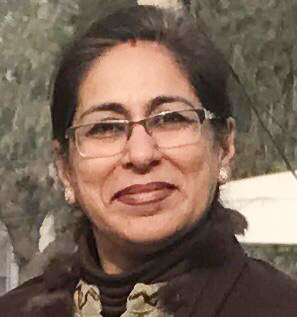
Dr. Meera D. Ansal
Address: Dean, College of Fisheries, Guru Angad Dev Veterinary and Animal Sciences University, Ludhiana
Email: deancof@gadvasu.in, fisheriescof@gmail.com
Call:+91-161-2414061, 2414053
Brief Introduction
Dr. Meera D. Ansal, Head, Department of Aquaculture, College of Fisheries, GADVASU joined as Dean of College of Fisheries on 15th September, 2020. After completing M.Sc. and Ph.D. in Zoology (Specialization: Fish & Fisheries) from Punjab Agricultural University (PAU), she joined as Assistant Professor (Fisheries) in 1999 in Institute of Agriculture, Regional Centre of PAU at Gurdaspur. She has made significant contribution in teaching, research, extension and institutional development. She has guided 11 M.F.Sc./Ph.D students and taught more than 20 UG/PG courses. Under ICAR’s prestigious Niche Area of Excellence Project (2010-2015), she played an instrumental role in aquaculture development in inland salt affected waste areas of south west districts of the State and was conferred with 'Best Success Story' award by the Indian Ecological Society. She is now working to develop ‘Climate Smart Aquaculture Technologies’ viz., diversification involving intercropping with high value species, growth promoting & immuno-stimulating herbal supplements and brood stock management for enhanced aquaculture productivity, without any additional pressure on already depleting multiple use water/land resources.
Recently, she earned an R&D project entitled “Establishment of Capacity Building Resource Centre for Intensive Aquaculture Technologies in Punjab- Recirculatory and Biofloc Aquaculture Systems” with 100% funding of 1.39 crores under PMMSY Center Sector Scheme (CSS) of Department of Fisheries (DoF), Ministry of Fisheries, Animal Husbandry and Dairying (MoFAHD), GOI, to promote intensive aquaculture technologies in the region. With 12 R&D projects and more than 200 publications including research papers, review articles, manuals, books, booklets, pamphlets and extension articles, to her credit, Dr. Meera has also been conferred with ‘Honorary Fellowship' of the Indian Ecological Society.
Former Dean
| Sr. No. | Name | Duration on the post | Date of Retirement | Photograph |
|---|---|---|---|---|
| 1. | Dr. Kamaldeep Kaur | 23-04-2008 to 31-12-2010 | 31-12-2010 | 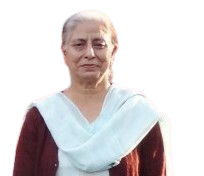 |
| 2. | Dr. Asha Dhawan | 12-01-2011 to 30-11-2017 | 30-11-2017 | 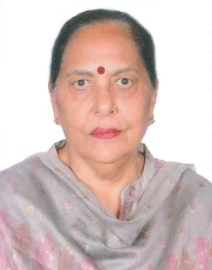 |
| 3. | Dr. Anil Kumar Puniya | 01-12-2017 to 08-01-2018 | 08-01-2018 | 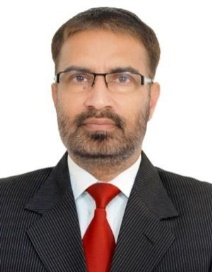 |
| 4. | Dr. Kulbir Singh Sandhu | 09-01-2018 to 14-09-2020 | 14-09-2020 | 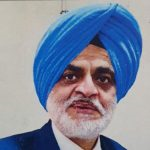 |
Facilities
- Smart Class Rooms well equipped with advanced audio-visual aids for quality education delivery system
- Lecture Hall - Capacity-100
- Committee Room
- College Library
- Laboratories well equipped with high-tech facilities for quality teaching and research.
- UG Practical lab
- Water Quality Lab
- Aquaculture Nutrition Lab
- Microscopy Lab
- Fisheries Resource Management Lab
- Aquatic Animal Health Management Lab
- Cell Culture Lab
- Aquatic Toxicology Lab
- Bioinformatics Cell
- Microbiology and Virology Lab (BSL-2 Facility)
- Fish Engineering Lab
- Fish Processing Technology Lab
- Other Facilties
- Fisheries Museum
- Aqua-House
- PG Student Chambers – 02
- Student Recreational Facility
- Faculty Recreational Facility
- Farm facilties- Adequate farm facilities for teaching ("STUDENT READY PROGRAM"- Experiential Learning and Skill Development), research, demonstration and capacity building at "Instructional cum Research Farm" spread over an area of 6 hectare
- Experimental Culture Pond - Nursery, rearing and stocking
- Demonstration Culture Pond- Semi-intensive Carp Polyculture Pond, Pangas Catfish Culture Pond, Integrated Fish cum Duck Fish farming Pond, Overwintering Pond, Brood stock Ponds, Polyhouse Ponds (Overwintering Facility
- Hatcheries - Circular Chinese Hatchery, Indoor Catfish/Murrel Hatchery, Portable Carp hatchery, Ornamental Fish Hatchery cum Aquarium House
- Different aquaculture Systems/Units -
- Recirculatory Aquaculture System
- Biofloc Aquaculture System
- Automated Aquaponics System
- Flow through System
- Green house
- Feed Mill with Extruder
- Duck Hatchery
- Live Food Culture Unit
- Quarantine Facility
- Azolla Culture Unit
- Waste Water Bioremediation Unit
- Vermicomposting Unit
- Herbal Garden
- Experiential Learning (EL) Modules
- Aquafarming
- Ornamental Fish Culture, Breeding and Seed production
- Fish Processing Technology
- Aquaculture Information Centre - Committee Room, Farmer Library, Technology Exhibition Room and Pantry
- Other Farm Facilities- Feed Stores, Field Stores, FRP Pools and aquaria
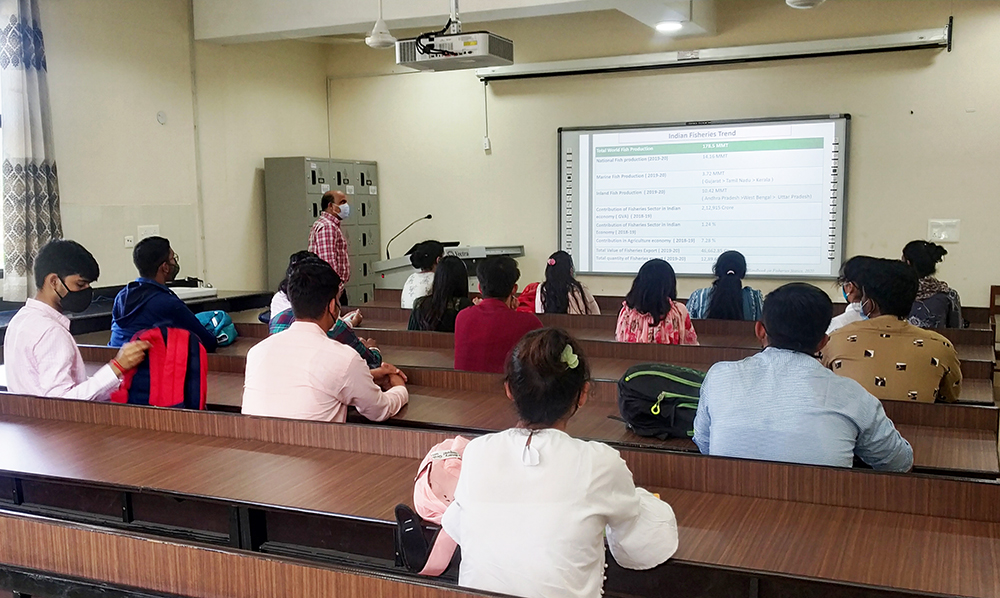 |
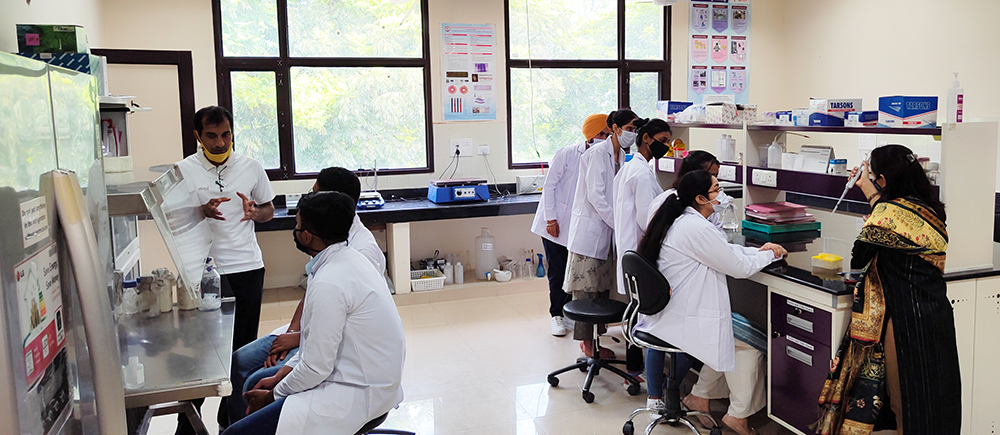 |
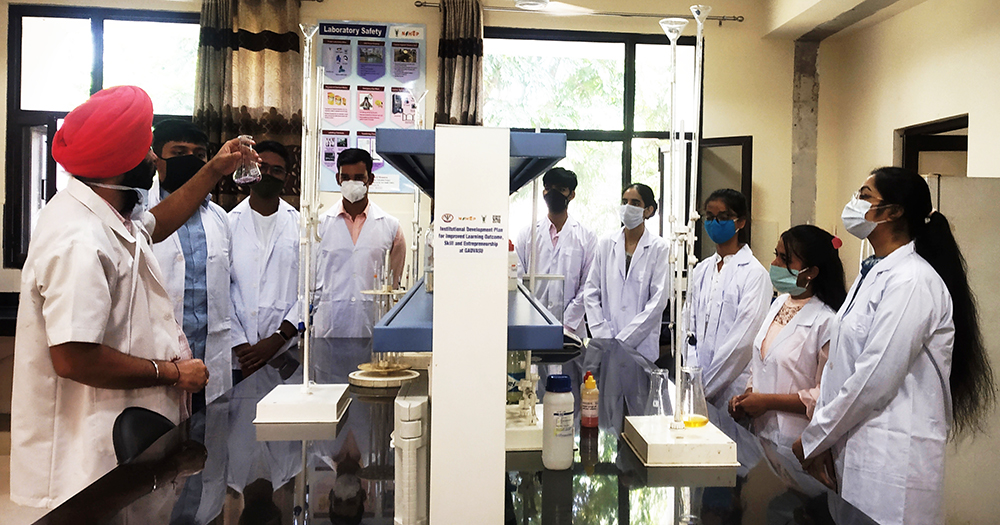 |
|
Smart Class Rooms |
Aquatic Animal Health Management Lab |
Water Quality Lab |
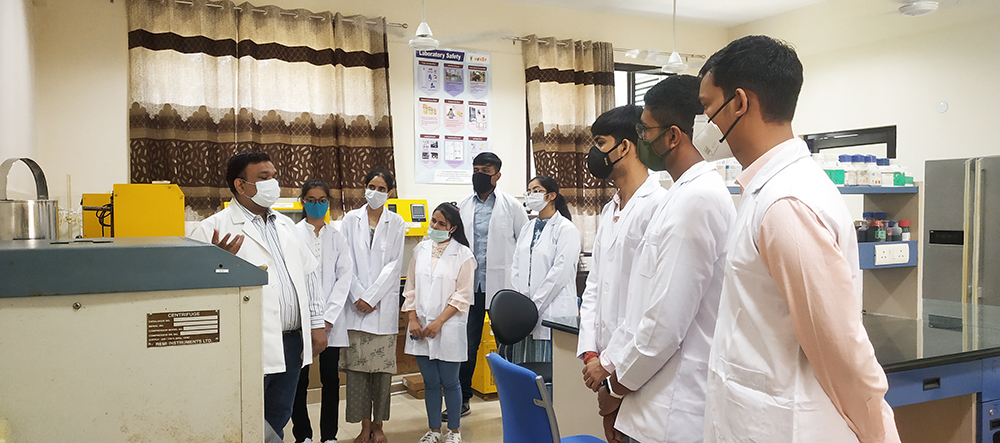 |
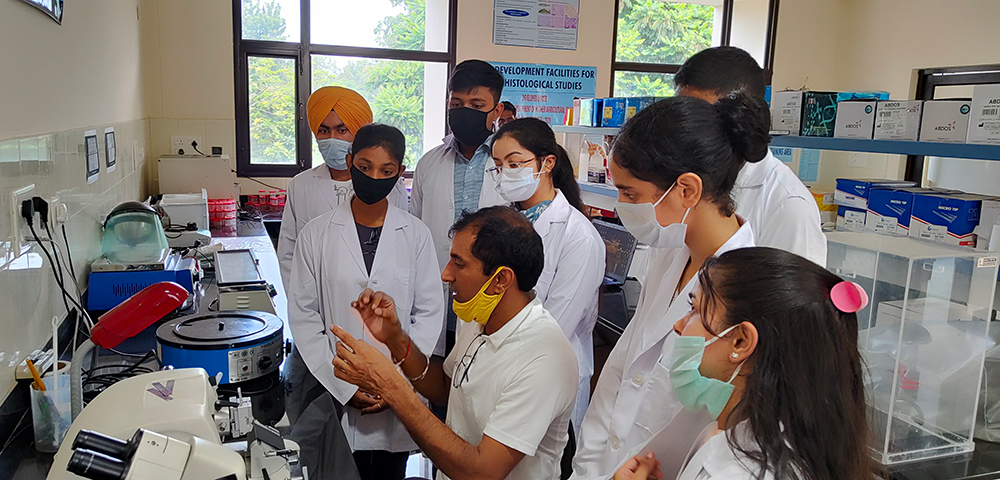 |
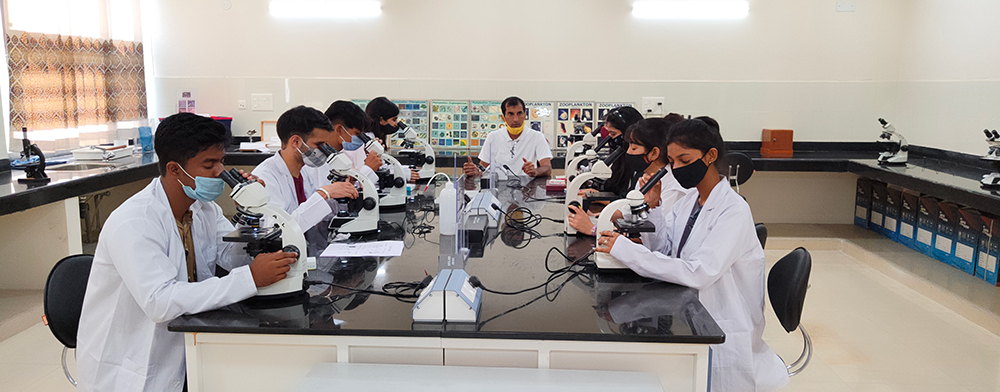 |
|
Aquaculture Nutrition Lab |
Aquatic Toxicology Lab |
Microscopy Lab |
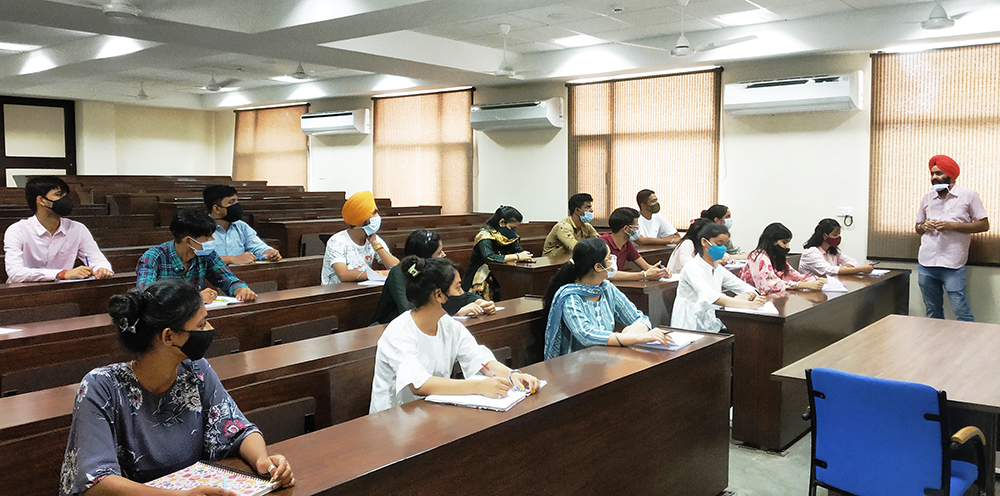 |
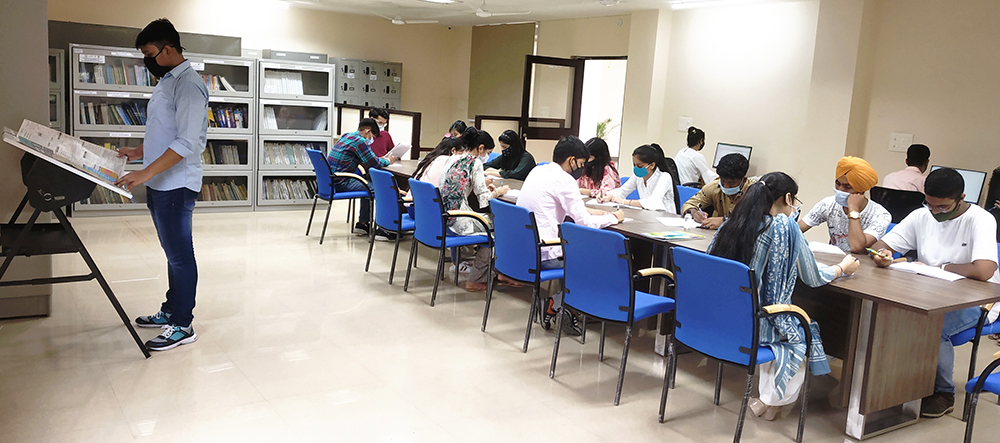 |
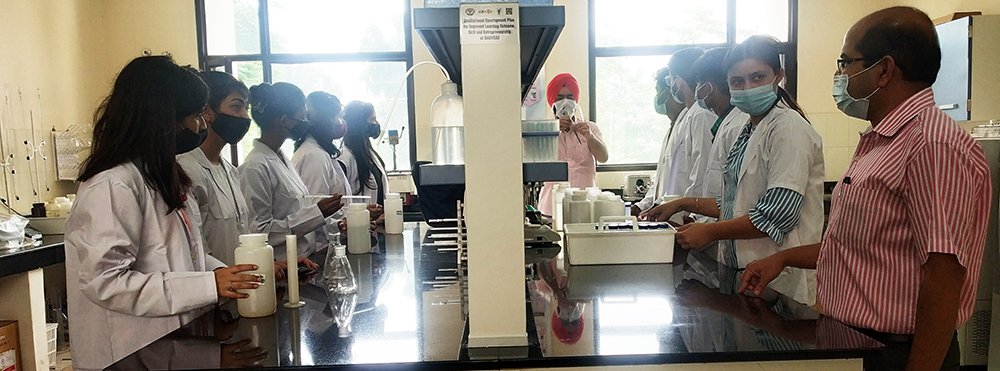 |
| Seminar Room | College Library |
Fisheries Resource Management Lab |
Faculty Detail
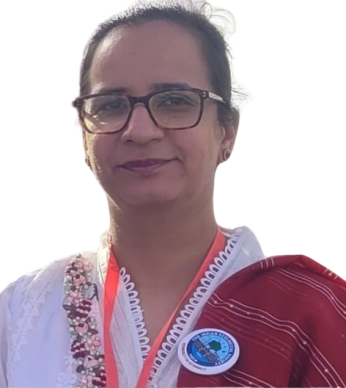
Dr. Vaneet Inder Kaur
Designation : Principal Scientist (Fisheries)
Contact Address : Department of Aquaculture, College of Fisheries, Guru Angad Dev Veterinary & Animal Sciences University, Ludhiana, Punjab 141004
Telephone : 0161-2414061
Mobile : 9463747981
Email : vaneetinderkaur@gadvasu.in,vinnygulati@gmail.com
Academic Credentials
- B.Sc. (Medical) from Khalsa College for Women, Ludhiana, Panjab University, Chandigarh (1997)
- M.Sc. (Fisheries) from Punjab Agricultural University, Ludhiana (1999)
- Ph.D. (Fisheries) from Punjab Agricultural University, Ludhiana (2002)
Teaching appointments
- UG/PG Course in Aquaculture (Culture and Breeding of Ornamental Fishes, Aquarium Fabrication, Set Up and Maintenance, Non-Food Aquaculture, Culture of Live/Natural Fish Food, Fish Nutrition and Feed Technology, Advances in Fish Nutrition, Aquaculture Production Systems).
Other appointments
- Head, Department of Aquatic Environment & Department of Harvest and Post Harvest Technology (Additional Charge)
- Chairperson, Research Committee, College of Fisheries
- Chairperson, Extension Committee, College of Fisheries
- Joint Secretary-cum-Treasure - The Indian Ecological Society, Ludhiana
- Farm Manager
- Member - Anti-Ragging Committee, Board of Studies, Academic Affair Committee,College of Fisheries.
Area of research
- Culture and breeding of freshwater exotic and indigenous ornamental fish species, Value addition of ornamental fishes through colour enhancement by utilizing natural and synthetic carotenoids, Culture and breeding of high value species (Singhi –Heteropneustes fossilis, Murrel – saul, Channa striatus), Formulation of nutritionally balanced diets for different fish species, Standardization of culture technology for duckweeds, Utilization of non-conventional feed resources (duckweeds) for developing cost effective feeds for carp, Standardization of Intensive Aquaculture Technologies/Systems – RAS & Biofloc Aquaculture
Ongoing projects
|
Sr.
No. |
PI/Co-PI |
Title of Project |
Funding Agency |
Period |
|
1 |
Co-I |
Institutional Development Plan (IDP)
for Improved Learning Outcome, Skill and Entrepreneurship at GADVASU |
ICAR-NAHEP |
2019-23 |
|
2 |
PI |
Experiential
Learning Program - Ornamental Fisheries: Culture, Breeding and Seed
production |
ICAR |
2019-20 |
|
3 |
PI |
Optimizing
culture and breeding technology for air breathing, high value fish striped
murrel, Channa striatus (Bloch.) |
RKVY |
2016-2019 |
|
4 |
Co-I |
Extension
Tools for strengthening technical support to fish farmers |
ICAR |
2016-17 |
|
5 |
PI |
Standardization of culture technology
of duckweed (Lemna sp.) and its
utilization as feed in carp polyculture system |
UGC |
2012-15 |
|
6 |
PI |
Culture and breeding technologies for
Ornamental fishes in Punjab |
RKVY |
2011-14 |
|
7 |
Co-I |
Niche Area of Excellence -Inland
Aquaculture in Punjab |
ICAR |
2010-15 |
|
8 |
Assoc.
Sci. |
Establishment of Capacity Building Resource Centre for Intensive
Aquaculture Technologies in Punjab - Re-Circulatory Aquaculture System (RAS) and Biofloc
Aquaculture System (BFAS) |
PMMSY, DOF,
MoFAHD |
2021- Continuing |
Research honours awards
- Fellow, Indian Ecological Society - 2022
- GADVASU Best Teacher Award – 2018
- GADVASU mBest Extension Worker Award – 2018
- Most Promising Lady Fisheries Scientist – 2017
- Attended NAIP (ICAR) Sponsored Two months (January 15, 2014 to March 15, 2014) International training at Ghent University, Belgium in the field of “Nutraceuticals
No of publications
| Research: 51 | Extension: 60 | Book/ Book Chapter: 05 | Manuals: 05 |
|---|
Publication
- Kaur, V.I., Singh, N, Banga, H.S. Singh, T and Singh, G. 2023, Commensurable Analysis of Scientific Communications Published in Reviews in Aquaculture Applying Scientometric Analysis. Indian Journal of Ecology. 50(4): 1155-1162
- Rawat, P., Kaur, V.I., Tyagi, A., Norouzitalla, P., Baruah, K. (2022). Determining the efficacy of ginger Zingiber officinale as a potential nutraceutical agent for boosting growth performance and health status of Labeo rohita reared in a semi-intensive culture system. Frontiers in Physiology. DOI: 10.3389/fphys.2022.960897.
- Kaur A, Shanthanagouda A H, Kaur VI, Bansal N and Naveenkumar BT. 2020. Biochemical and histomorphological associated in vivo responses of turmeric supplemented diets in Rohu, Labeo rohita (Linn.). Aquaculture Research 1–9
- Khan I. Kaur V I and Datta S N 2020. Effect of fish silage supplemented diets on growth and health status of Pangas Catfish, Pangasianodon hypophthalmus Fry. Indian Journal of Animal Research DOI: 10.18805/ijar.B-3954
- Han B, Kaur V I, Baruah, K, Nguyen V D and Bossier P. 2019. High doses of sodium ascorbate act as a prooxidant and protect gnotobiotic brine shrimp larvae (Artemia franciscana) against Vibrio harveyi infection coinciding with heat shock protein 70 activation. Developmental and Comparative Immunology 92: 69-76
- Jain A, Kaur VI and Shanthanagouda AH. 2019. Effect of dietary supplementation of carrot meal on survival, growth and pigmentation of freshwater ornamental fish, koi carp, Cyprinus carpio (L.). Indian Journal of Animal Nutrition 36 (4): 405-13
- Kumar P, Kaur VI, Tyagi A and Nayyar S. 2019. Probiotic potential of putative lactic acid bacteria isolated from the fish gut: Immune modulation in Labeo rohita (Ham). Journal of Coastal Research 86(2):119-27
- Datta, S. N., Kaur, V.I., Dhawan, A and Jassal, G. 2013. Estimation of length-weight relationship and condition factor of spotted snakehead Channa punctatus (Bloch) under different feeding regimes. Springer Plus 2:436.
- Kaur V.I. and Ansal M.D. 2010. Efficacy of vermicompost as fish pond manure – Effect on water quality and growth of Cyprinus carpio (Linn.). Bioresource Technology. 101(15): 6215-6218.
- Kaur, V. I. and Saxena P. K. 2004. Incorporation of brewery waste in supplementary feed and its impact on growth in some carps. Bioresource Technology 91: 101-104
